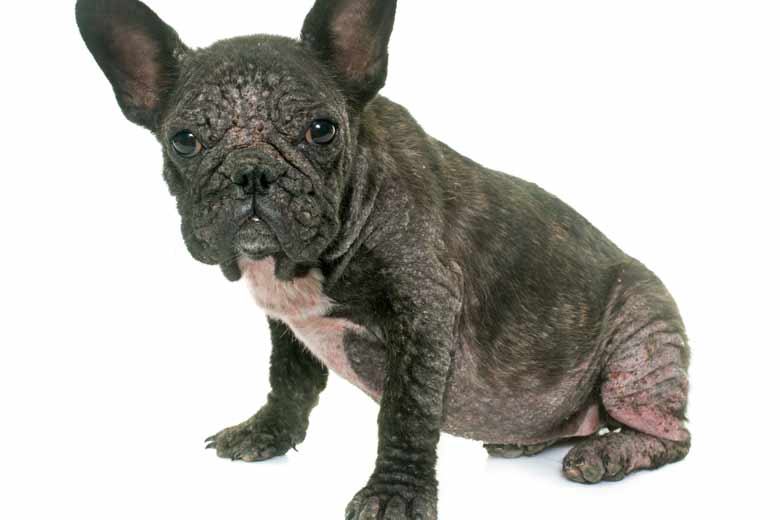
Also called demodicosis, is caused by a microscopic mite of the Demodex genus. Three species of Demodex mites have been identified in dogs: Demodex canis, Demodex gatoi, and Demodex injai. The most common mite of demodectic mange is Demodex canis. All dogs raised normally by their mothers possess this mite as mites are transferred from mother to pup. Most dogs live in harmony with their mites, never suffering any consequences from being parasitized.
However, if conditions change to upset the natural equilibrium, such as some kind of suppression of the dog’s immune system, the Demodex mites proliferate and can cause serious skin disease. Young dogs have inherently immature immune systems and are thus susceptible to the development of demodicosis without any underlying immunosuppressive disease.
Is Demodectic Mange Contagious?
Demodectic mange (unlike sarcoptic mange) is NOT considered a contagious disease. Isolation of affected dogs is not considered necessary. Demodex mites are species specific; they cannot be transmitted to humans or cats.
Diagnosing Demodectic Mange
Clinically dogs present with signs of hair loss. This can be seen as solitary patches of hair loss initially, and can then become generalised as more areas become affected over the body. The condition itself isn’t initially itchy to your pet but if there is a secondary infection present, usually bacterial, you may see your dog scratching and chewing affected areas.
Demodex is diagnosed by your vet performing one to multiple skin scrapes, which are then examined under the microscope. Finding mites can be difficult due to their location in the skin, multiple scrapes may be performed. One mite found on skin scraping gives a diagnosis of demodectic mange.
Treatment of Demodicosis
To treat demodectic mange your pet will require weekly injections to kill the mites whilst his/her immune system is maturing. It will take months not weeks of treatment to resolve. On average it takes 3 months to treat a Demodex case. It may take longer in severe cases. As a result of this long term therapy, treatment is expensive.
If required your vet may also prescribe antibiotics to treat secondary skin infections. We treat weekly with injections for 4 to 6 weeks followed by a recheck and skin scrape with your Vet. Two consecutive negative skin scrapes are required before discontinuing treatment. If treatment is stopped too early relapse is likely.
Relapse
Relapse is always a possibility with demodicosis as there is no easy way to confirm that every mite has been killed, but most dogs that relapse do so within a 6 to 12 month period from the time they appear to have achieved cure.